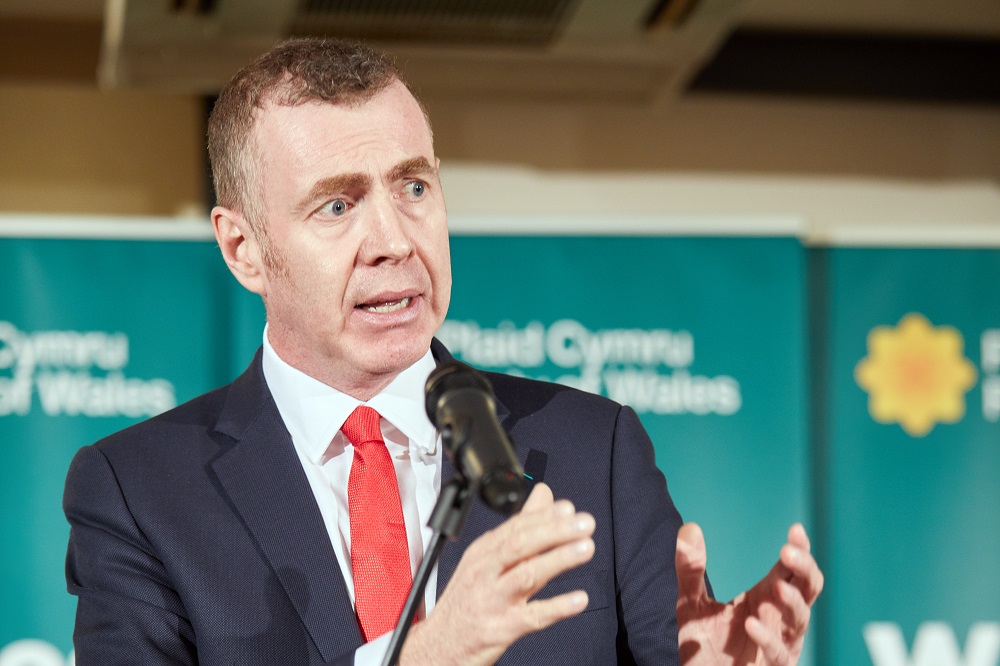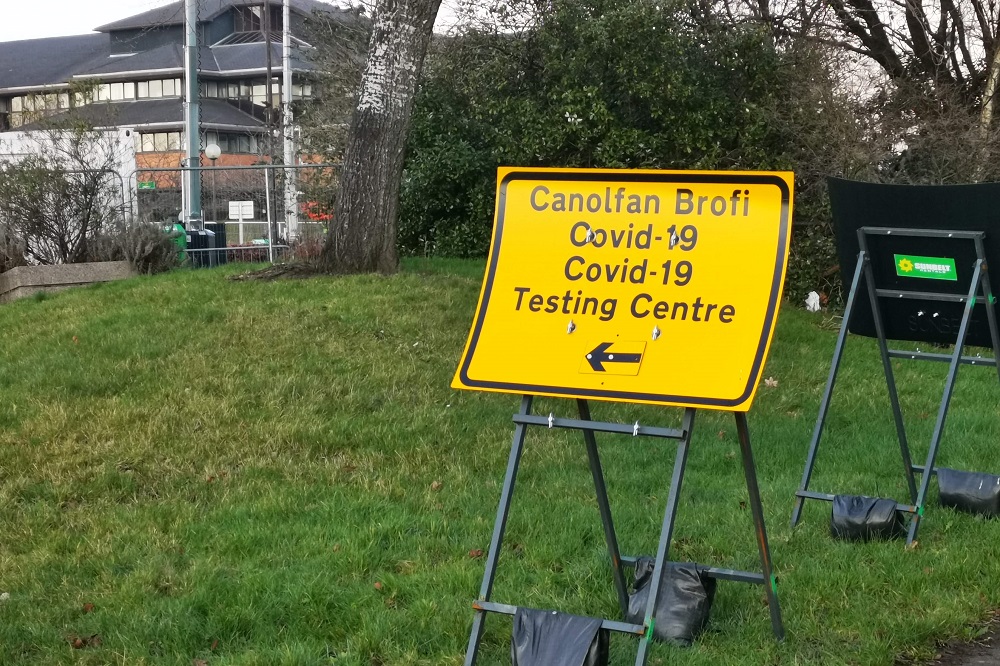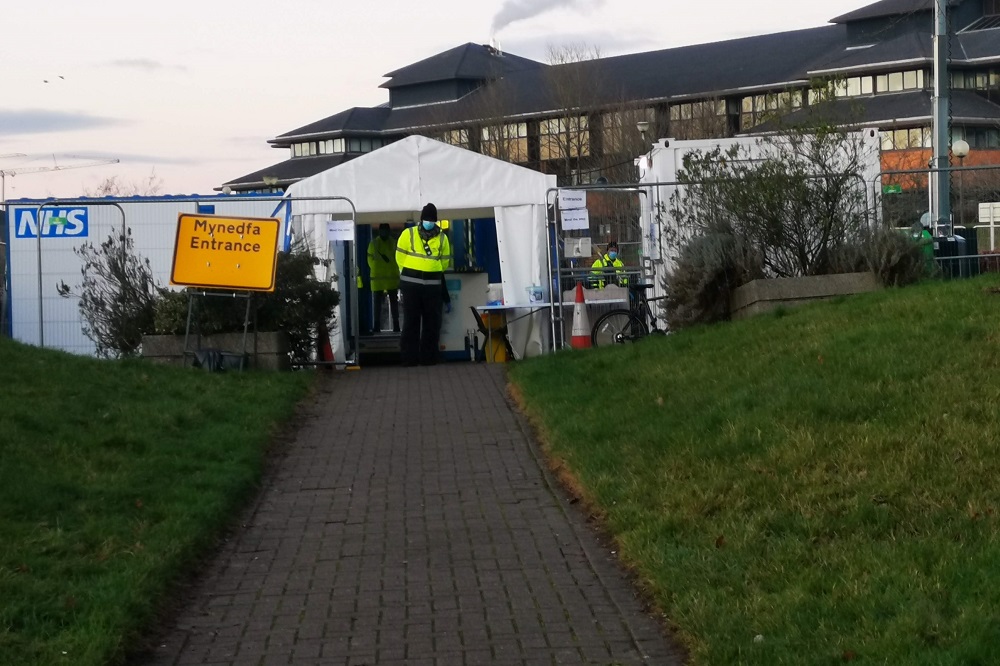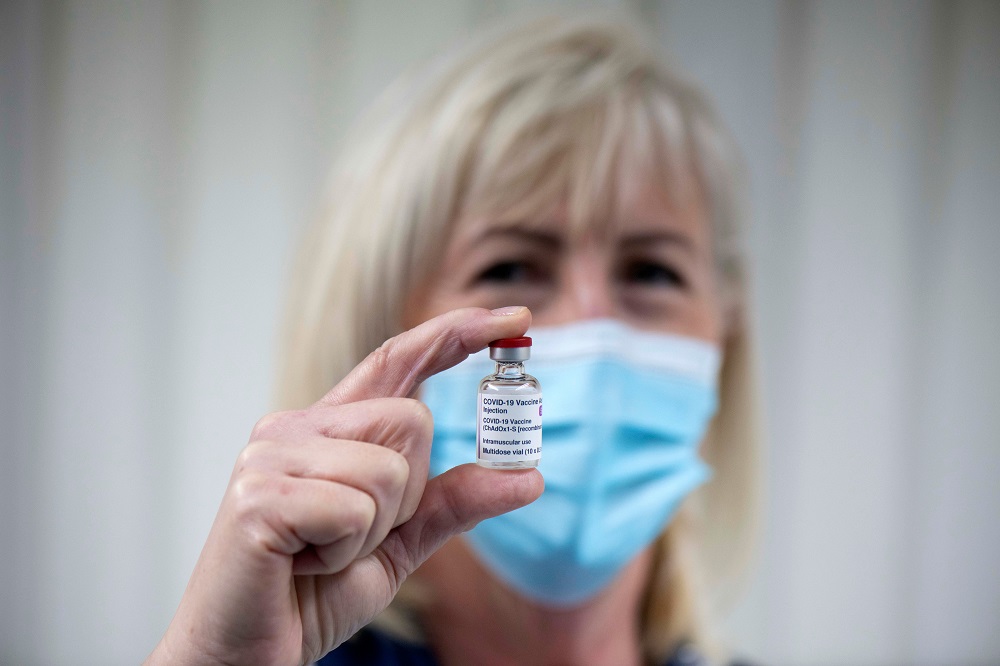News in brief: Plaid Cymru pushes for new measures to combat Covid-19 variants

Plaid Cymru Leader Adam Price MS has urged the Welsh Government to adopt a range of new measures in response to the new highly transmissable Covid variants that have been identified in Wales in recent weeks.
At Wednesday’s press briefing, the Welsh Government’s chief scientific adviser for health, Dr Rob Orford, confirmed the new variant that originated in the southeast of England last summer and is up to 70% more transmissible, is now the dominant strain across Wales.
Dr Orford also revealed three other new variants are being tracked – one which originated in South Africa and two from Brazil.
Scientists are particularly concerned about the South African mutation, of which 10 cases have been identified in Wales, as some research suggest the vaccines currently available might not be as effective in protecting against it.
The measures proposed by Mr Price include:
- Mandatory medical-grade face masks.
- Increase the level and extend the eligibility of the current Self Isolation Support Grant
- 24/7 hubs for the vaccine rollout, particularly when the younger population starts being inoculated.
- rapid rollout of mass community testing, with a particular focus on workers that cannot work from home.
- Reduce within-household transmission by increasing winter fuel allowance to encourage greater ventilation, offering out-of-home isolation accommodation, and better communication with public on how to prevent transmission within the home.
- Reduce between-household transmission by encouraging food retailers to prioritise homes in isolation for deliveries, arrange vaccinated care workers to look after dependents should unpaid carer in household fall ill with Covid.
- A cash injection into mental health services to enable telehealth consultations to take place virtually from the home. Australia conducted 1 million consultations in just six weeks with $35m additional funding.
“With the evidence showing that the more transmissible Kent variant is now the dominant strain in all parts of Wales, the Welsh Government should bring in a suite of new measures in an effort to drive down rates further,” Mr Price said.
Virus’
“As the virus mutates and with a sobering death toll, the Welsh Government should be constantly reviewing its approach to responding to the pandemic.
“New measures it should consider introducing immediately including making medical-grade masks which offer greater protection compulsory for everyone. The Welsh Government has already invested £1.5m in Hardshell – the UK’s first medical-grade mask-making facility – so it should be making sure that every resource is optimised to protect public health.
“Having been too slow into lockdown, we can’t be too slow in examining all possible avenues for bringing the new variant under control.
“With this variant being more transmissible, Plaid Cymru wants to see a renewed focus on reducing transmission within and between households. This should include more support for those self-isolating, strengthened public health messages on washing hands and cleaning household surfaces, greater mental health support, and a 24/7 approach to the vaccine rollout.”

Covid case rates drop to lowest level since October
The downward trajectory of Covid-19 cases is continuing as Public Health Wales has confirmed the seven-day case rate is now 177.3 per 100,000, down from 190.2 yesterday and the lowest recorded since the week ending 18 October.
PHW has also confirmed 29 further deaths and 546 new positive tests for Covid since yesterday’s report.
Over 27,000 people received their first vaccine jab yesterday, taking the total since 8 December to 363,253. 43 people also received their second dose, taking the total to 717.
Wrexham (59) had the highest number of new cases, followed by Cardiff (58) and Carmarthen (42).
Wrexham continues to have the highest weekly case rate in Wales at 438.4 per 100,000 people down from 477.4 yesterday. It also has the highest positive test rate at 21.6% per 100,000 tests over the last seven days.
Dr Robin Howe, Incident Director for the Coronavirus outbreak response at Public Health Wales, said: “We are increasingly confident in the data which is showing a consistent downward trend in the numbers of positive cases in Wales.
“However, the number of cases is still high, and this is placing extreme pressure on our NHS Wales hospitals.
“This is a crucial time. We must ensure that we stick to the rules over the next few weeks so that the number of cases continues to reduce and that hospitals can start to recover, while the vaccination programme is underway to protect the most vulnerable in our communities.

Updated Covid-19 testing strategy published
A revised and updated coronavirus testing strategy has been published by Health Minister Vaughan Gething.
The original testing strategy was published in July 2020 and has been revised in light of a greater understanding of the virus, the development of new testing technology and the roll-out of he vaccination programme.
The strategy also expands the testing approach to include more regular testing for NHS and care home staff and patients in hospitals.
The priority area’s the new strategy focuses on are:
- Test to diagnose – Testing patients on admission to hospital, patients who develop symptoms while in hospital, asymptomatic in-patients five days after admission and planned admissions to protect patients who are at increased risk.
- Test to safeguard – Regular asymptomatic testing for NHS and care home staff, supported living staff, staff working with vulnerable people in special schools, domiciliary care staff and prison staff.
- Test to find – Continuing to test anyone who thinks they have symptoms to identify to isolate Covid-19 cases in the community, reduce the transmission of infection, support contact tracing, protect vulnerable individuals and help to slow or stop the spread of the disease.
- Test to maintain – Regular testing of the workforce in various settings to find cases and exploring whether testing of asymptomatic contacts could allow people to safely remain at work or schools instead of isolating for 10 days. We are currently piloting and evaluating this approach.
- Test to enable – Considering how testing might work alongside vaccination to enable people with a negative result or those who demonstrate the required level of antibodies in their system to travel internationally, attend work or cultural or sporting events or meet family and friends.
Mr Gething said: “Since the last strategy was published, new testing technologies have demonstrated it is possible to test at far greater scale, frequency and speed than ever before. Testing remains important as we roll out the vaccine. Once vaccinated, it is still critical that people continue to follow the guidance and if showing symptoms, get tested.”

Council leader vows to minimise’ staff jumping the vaccine queue
Alex Seabrook, local democracy reporter
Cardiff council leader Huw Thomas has said “certain safeguards” are in place to avoid staff jumping the vaccine queue.
An anonymous council worker recently claimed the vaccine was being given to managers working from home and staff working overtime, rather than the strict priority rules. The council denied the claims.
But the question was raised again during a full council meeting on Thursday, January 28, when Cllr Thomas described vaccine queue-jumping as “a live issue”.
Cllr Emma Sandrey asked the council leader for reassurance that “no council worker is receiving the vaccine before it’s appropriate for them to do so”.
Cllr Thomas said: “This is a very live issue. I have certainly indicated to the chief executive that we must be very clear in terms of staff expectation.
“We are seeing examples from elsewhere in the country of things falling through the net. We will do our best to avoid that or minimise that.”
According to the Joint Committee on Vaccination and Immunisation, vaccines should be given first to all care home residents and staff, frontline health and social care staff, everyone aged over 70, and everyone who is clinically extremely vulnerable.
The worker alleged that managers at Cardiff council were receiving the vaccine instead, and the vaccine was being used to encourage some staff to work overtime. Cardiff council denied the claims as “nonsense”.
Cllr Sandrey, writing on Twitter, said she was “not really reassured by the answer” from the council leader. She added his response was in “stark contrast to what they told the press”.
Reports elsewhere in the UK of council workers jumping the queue to get vaccines emerged recently in Denbighshire, Cambridgeshire and Peterborough.

Support our Nation today
For the price of a cup of coffee a month you can help us create an independent, not-for-profit, national news service for the people of Wales, by the people of Wales.





